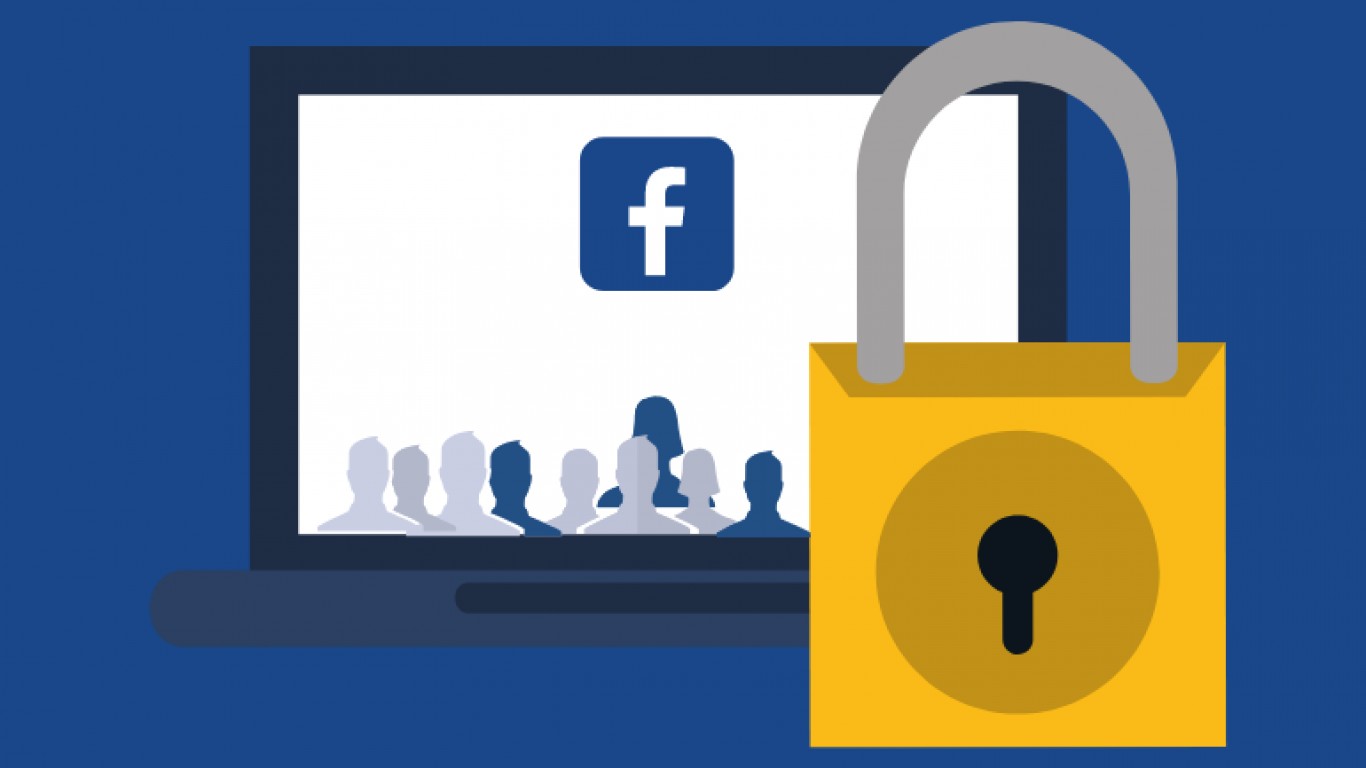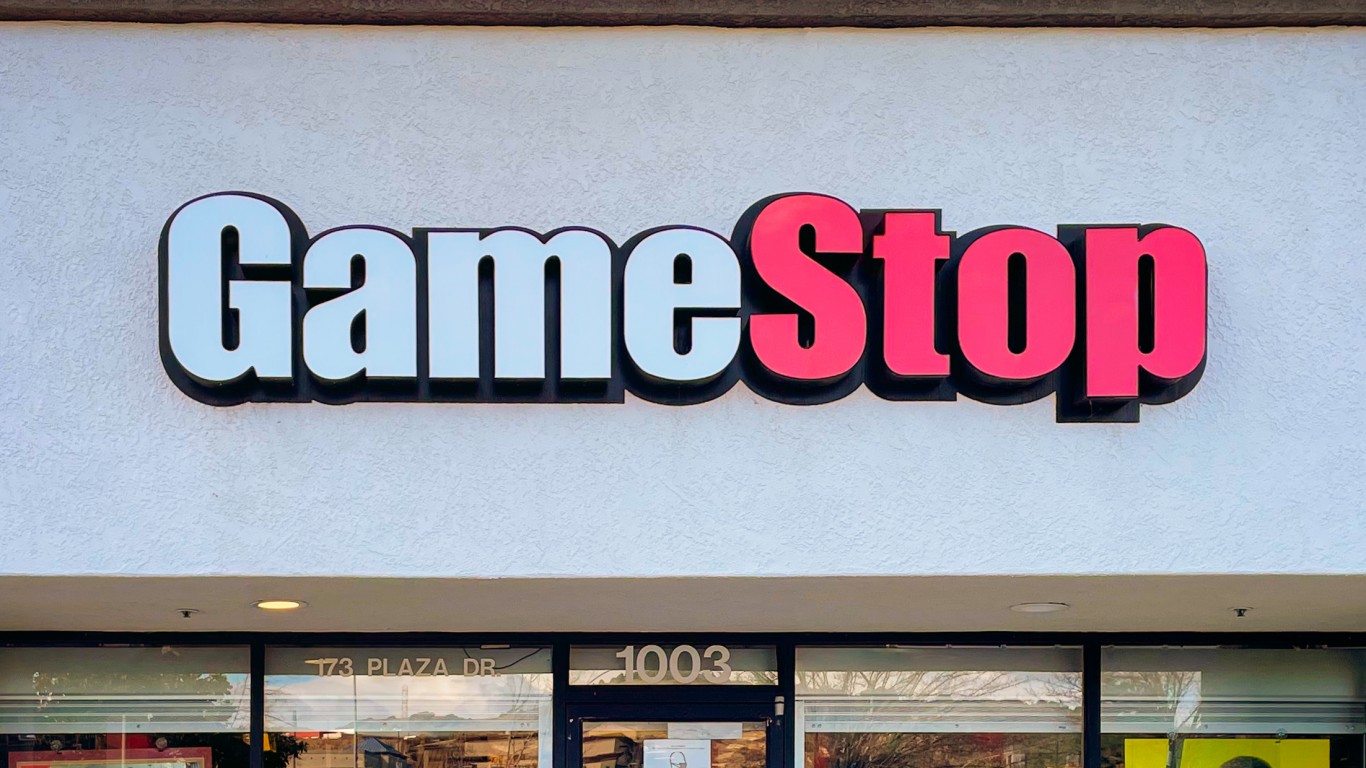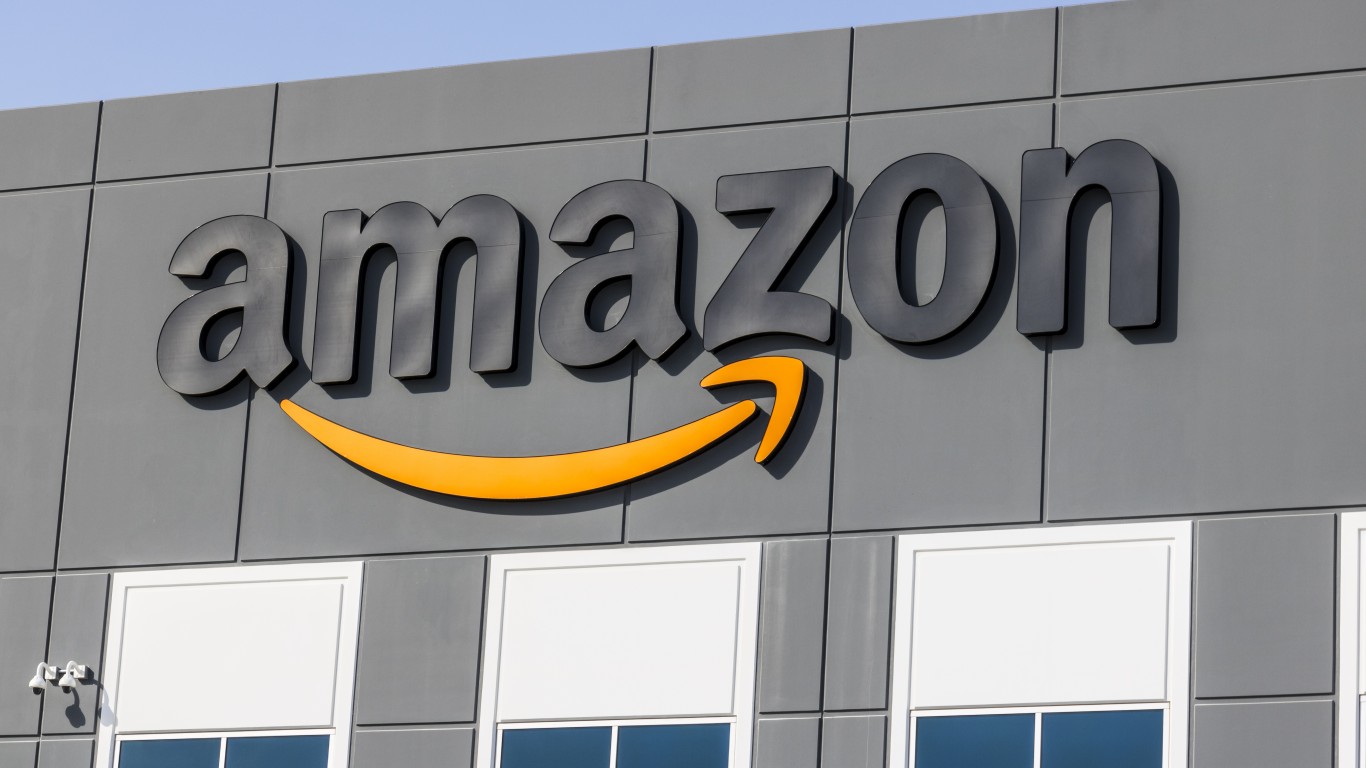
How much confidence do you have in big businesses? What about small businesses? How satisfied are you with the size and influence of major corporations, or of how the government regulates big businesses and industries?
Polling and analytics firm Gallup has been asking Americans these and other questions for years to gauge the public’s sentiment about the private sector over time, through pivotal events in their lives and the life of the nation as a whole.
Polls have consistently shown the public puts a lot of trust in small business, but it’s the large publicly traded corporations that hold outsize political influence. They funnel billions of dollars of political cash into the campaign coffers of federal lawmakers and presidential candidates, and they hire legions of lobbyists to push policies that widen profit margins, cut tax obligations, and turn CEOs into mega-billionaires — even at the expense of cutting public revenue and services and jacking-up the national debt.
At the same time, some of the money from these large companies trickles down into the investment accounts of the rich — and not-so rich. Though affluent American households profit disproportionately from stock gains, share buybacks, dividends, and capital gains tax cuts pushed by corporate America, middle- and lower-income Americans also benefit if they have a 401(k) account or a public pension. (If you’re ready to cash in your 401(k) or start collecting your pension, here’s what it costs to retire in every state.)
To determine how Americans have felt about big business every year since 2000, 24/7 Wall St. reviewed Gallup survey results collected over several days in each of the last 22 years. The survey asked: “Please tell me how much confidence you, yourself, have in [big business] — a great deal, quite a lot, some or very little?” (To provide context, we also reviewed the performance of the Dow Jones Industrial Average index for each year, as compiled by Macrotrends.)
Click here to see how Americans felt about big business every year this century
One major takeaway from this Gallup polling: Since 2002, between 31% and 41% of Americans have had “very little” or zero confidence in big business — a considerably smaller percentage than during the dot-com bubble years and economic boom of the ‘90s. These are the American companies with the worst reputations.
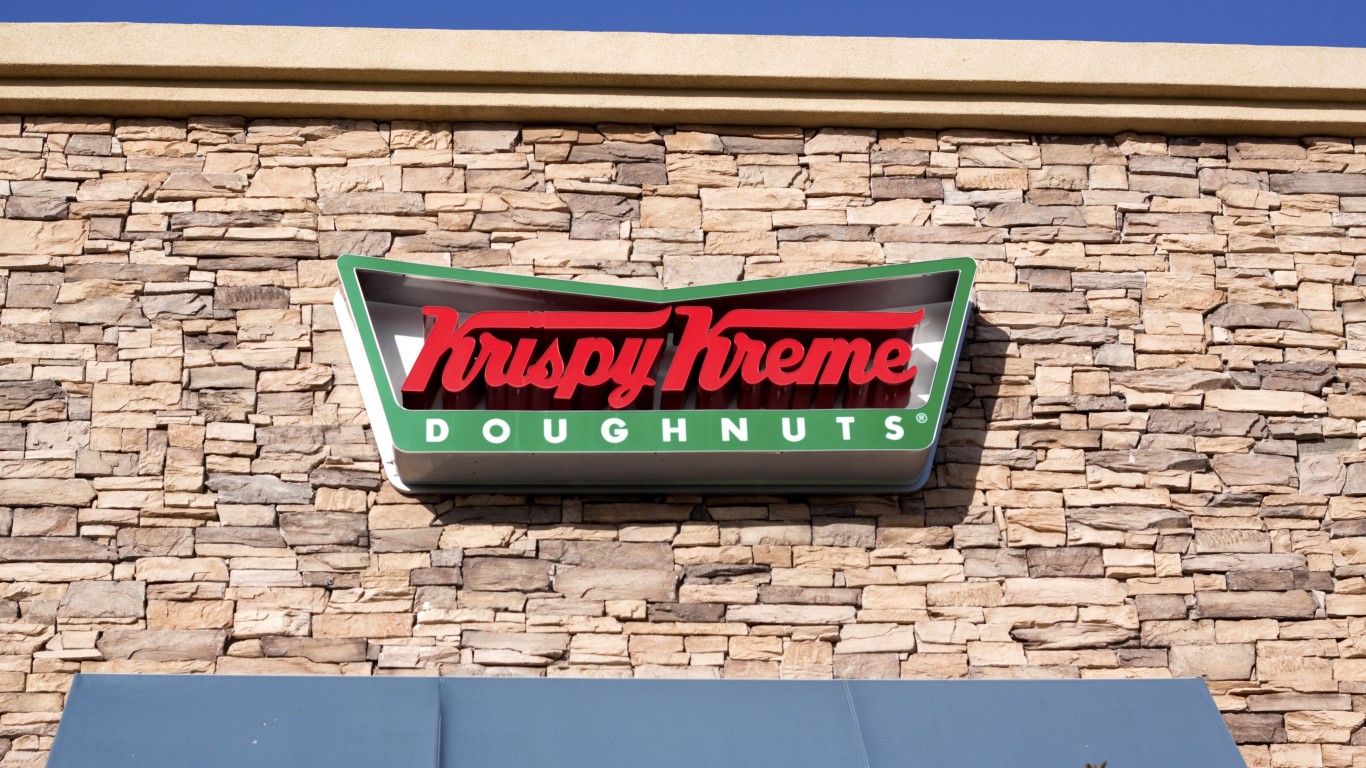
2000
> Highly confident in big business: 29% of Americans
> Somewhat confident in big business: 45% of Americans
> Little to no confidence in big business: 24% of Americans
> Dow Jones Industrial Avg. performance: -6.2%
In January 2000, the Dow Jones Industrial Average and NASDAQ both hit all-time highs, marking the peak of the dot-com bubble. Big corporate news that year included America Online’s ill-fated purchase of Time Warner for $165 billion in one of the largest mergers in history. That summer, Krispy Kreme became a publicly traded doughnut-and-coffee company.
[in-text-ad]
2001
> Highly confident in big business: 28% of Americans
> Somewhat confident in big business: 44% of Americans
> Little to no confidence in big business: 26% of Americans
> Dow Jones Industrial Avg. performance: -7.1%
In the world of big business, 2001 marked the release of the first Apple iPod, the first Microsoft Xbox, and the last Trans World Airlines flight. China entered the World Trade Organization and the United States granted China permanent normal trade status. The year wound down with the bankruptcy of energy commodities and trading firm Enron, a company that became a symbol of corporate greed, corruption and fraud.
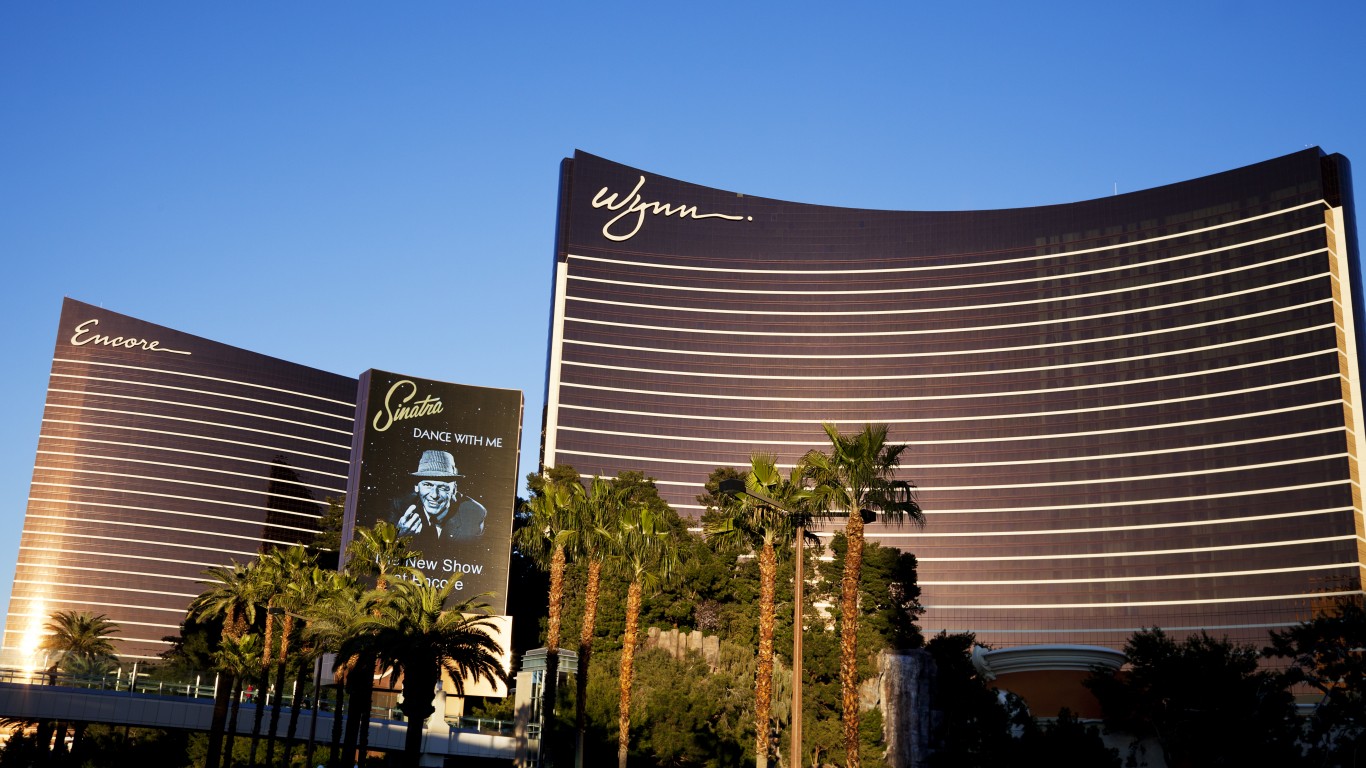
2002
> Highly confident in big business: 20% of Americans
> Somewhat confident in big business: 47% of Americans
> Little to no confidence in big business: 32% of Americans
> Dow Jones Industrial Avg. performance: -16.8%
The year 2002 began with the emergence of the euro, one of the world’s top tradable currencies along with the British pound, the Swiss franc, the Japanese yen, and the dominant U.S. dollar. All other Eurozone currencies ceased to be legal tender at the end of February. Premium hotel and casino operator Wynn Resorts became a publicly traded company in October.

2003
> Highly confident in big business: 22% of Americans
> Somewhat confident in big business: 44% of Americans
> Little to no confidence in big business: 33% of Americans
> Dow Jones Industrial Avg. performance: +25.3%
In May, oil field services company Halliburton revealed that its Kellogg Brown and Root subsidiary paid bribes to Nigerian officials for favorable tax treatment. Halliburton was a key defense industry contractor during the U.S. military campaigns in Afghanistan and Iraq. Vice President Cheney, a key player in the U.S. War on Terror, was CEO of Halliburton until he became George W. Bush’s running mate for the 2000 presidential election.
[in-text-ad-2]
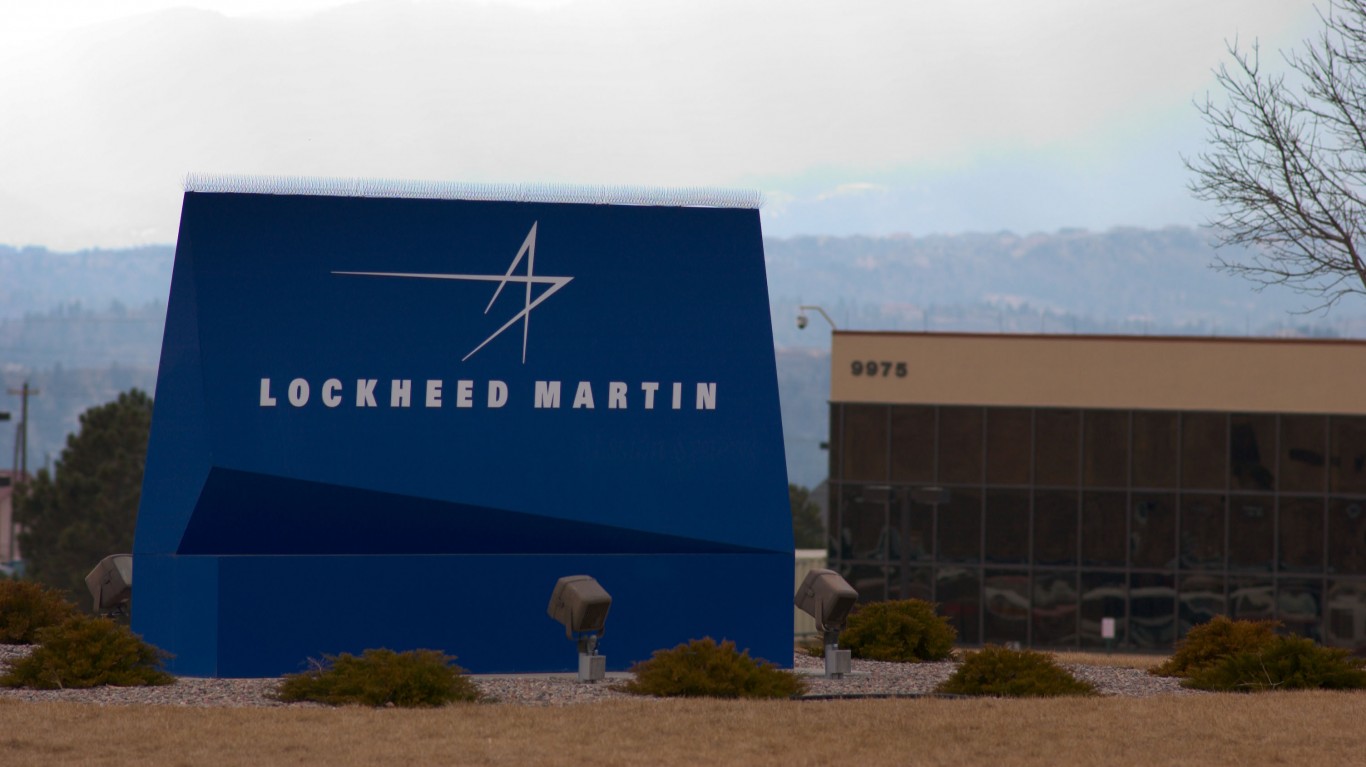
2004
> Highly confident in big business: 24% of Americans
> Somewhat confident in big business: 42% of Americans
> Little to no confidence in big business: 33% of Americans
> Dow Jones Industrial Avg. performance: +3.2%
Mark Zuckerberg and a group of friends unleashed Facebook on the public in February. (Now the world’s most popular social media platform, it faces scrutiny for alleged antitrust practices and its role and responsibilities in distributing user-generated propaganda and misinformation.) That summer, SpaceShipOne, piloted by Mike Melvill, became the first privately funded craft to reach space, heralding the dawn of the era of private space missions.
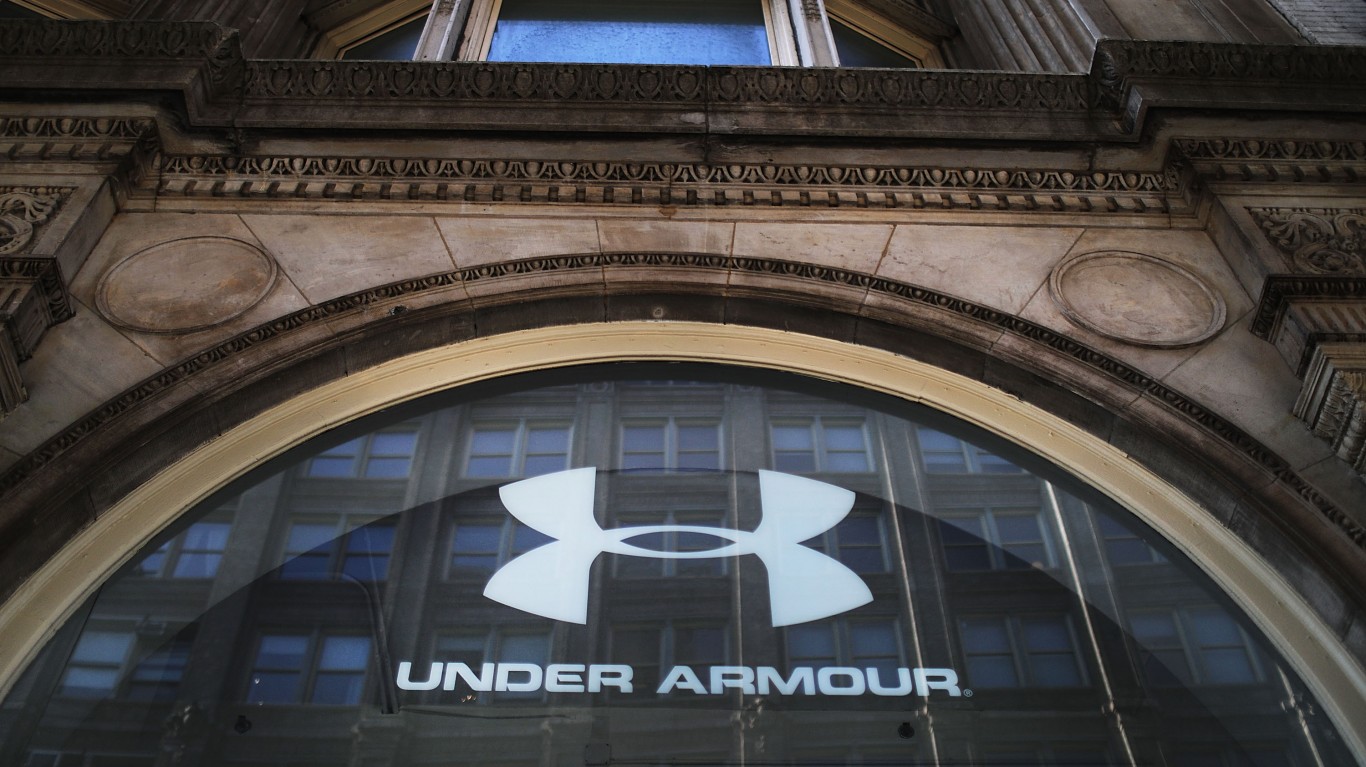
2005
> Highly confident in big business: 22% of Americans
> Somewhat confident in big business: 45% of Americans
> Little to no confidence in big business: 31% of Americans
> Dow Jones Industrial Avg. performance: -0.6%
The first YouTube video was uploaded on April 23, to what is now the world’s most popular video sharing and streaming platform. Google (now Alphabet) purchased YouTube the following year for $1.65 billion. In the summer of 2005, athletic apparel company Under Armour became a publicly traded company.
[in-text-ad]
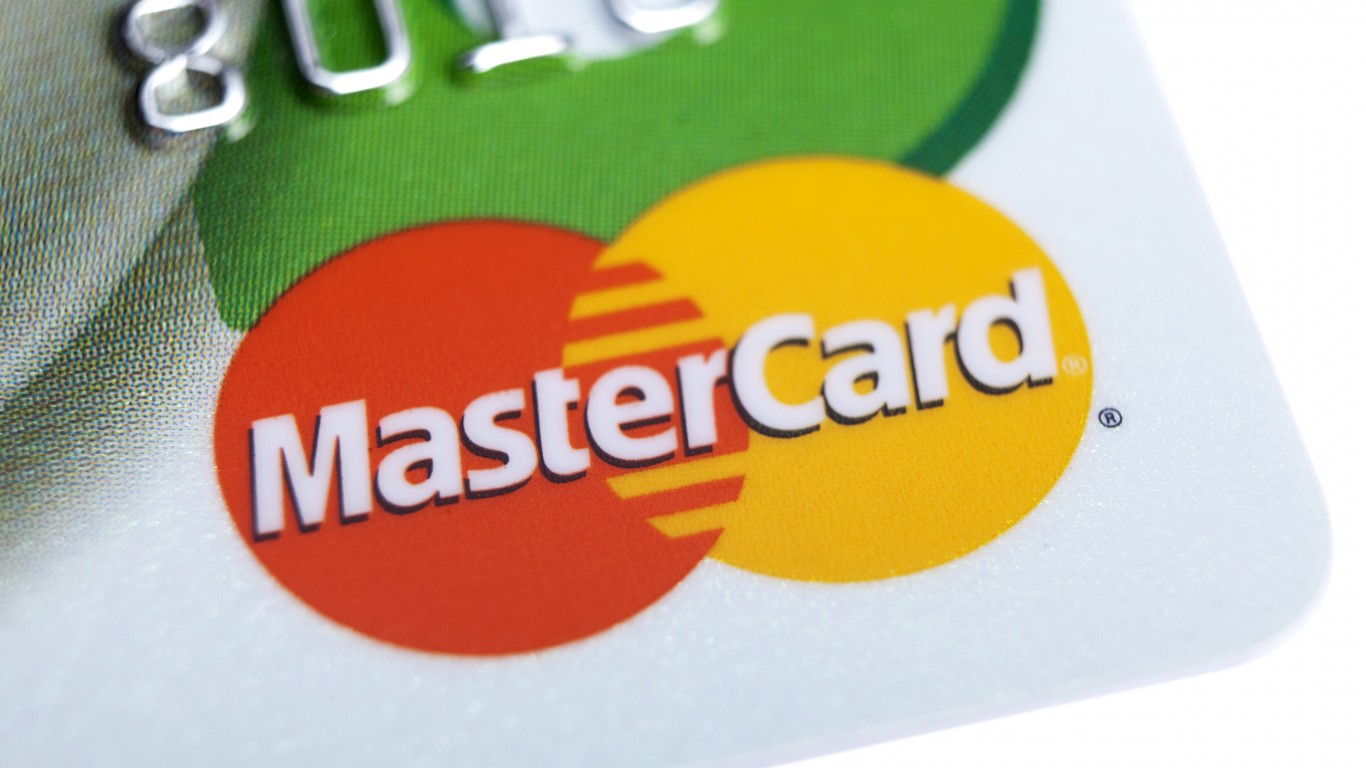
2006
> Highly confident in big business: 18% of Americans
> Somewhat confident in big business: 40% of Americans
> Little to no confidence in big business: 40% of Americans
> Dow Jones Industrial Avg. performance: +16.3%
The year began with Apple releasing its first iMac using Intel processors and The Walt Disney Company purchasing Pixar Animation. In March, Jack Dorsey released micro-blogging platform Twitter, which, like Facebook, has since elicited criticisms about its role in the distribution of propaganda and misinformation. In May, MasterCard became a publicly traded company, ending its decades-long run as a collective enterprise.
2007
> Highly confident in big business: 18% of Americans
> Somewhat confident in big business: 39% of Americans
> Little to no confidence in big business: 41% of Americans
> Dow Jones Industrial Avg. performance: +6.4%
The year started with Apple introducing its first iPhone, which went on the market in the U.S. that summer, launching the era of touchscreen smartphones. In April, New Century, a real estate investment trust specializing in U.S. subprime mortgage lending and securitization, filed for Chapter 11 bankruptcy protection. Over that summer, Bear Stearns bailed out two of its hedge funds with exposure to U.S. subprime mortgages. These and other events served as early warning signs of an impending financial crisis.
2008
> Highly confident in big business: 20% of Americans
> Somewhat confident in big business: 43% of Americans
> Little to no confidence in big business: 35% of Americans
> Dow Jones Industrial Avg. performance: -33.8%
Amid the worst recession since the Great Depression and a total meltdown of the U.S. housing market, 2008 also witnessed the introduction of the Google Chrome browser and the Linux-based Android mobile operating system. SpaceX’s Falcon 1 became the first privately developed space launch vehicle to reach orbit. Also launched in 2008: Swedish music streamer Spotify. Meanwhile, Chipotle Mexican Grill faced the first of a series of tainted-food outbreaks over several years.
[in-text-ad-2]

2009
> Highly confident in big business: 16% of Americans
> Somewhat confident in big business: 42% of Americans
> Little to no confidence in big business: 41% of Americans
> Dow Jones Industrial Avg. performance: +18.8%
In January, Bitcoin, now the most popular of the decentralized cryptocurrencies, was launched and big-box electronics retailer Circuit City closed all of its stores. Insurance giant AIG said in March that it had lost $62 billion at the end of 2008, nearly half from exposure to U.S. mortgage-backed securities — opening the way for another round of bailout funding from the U.S. government.
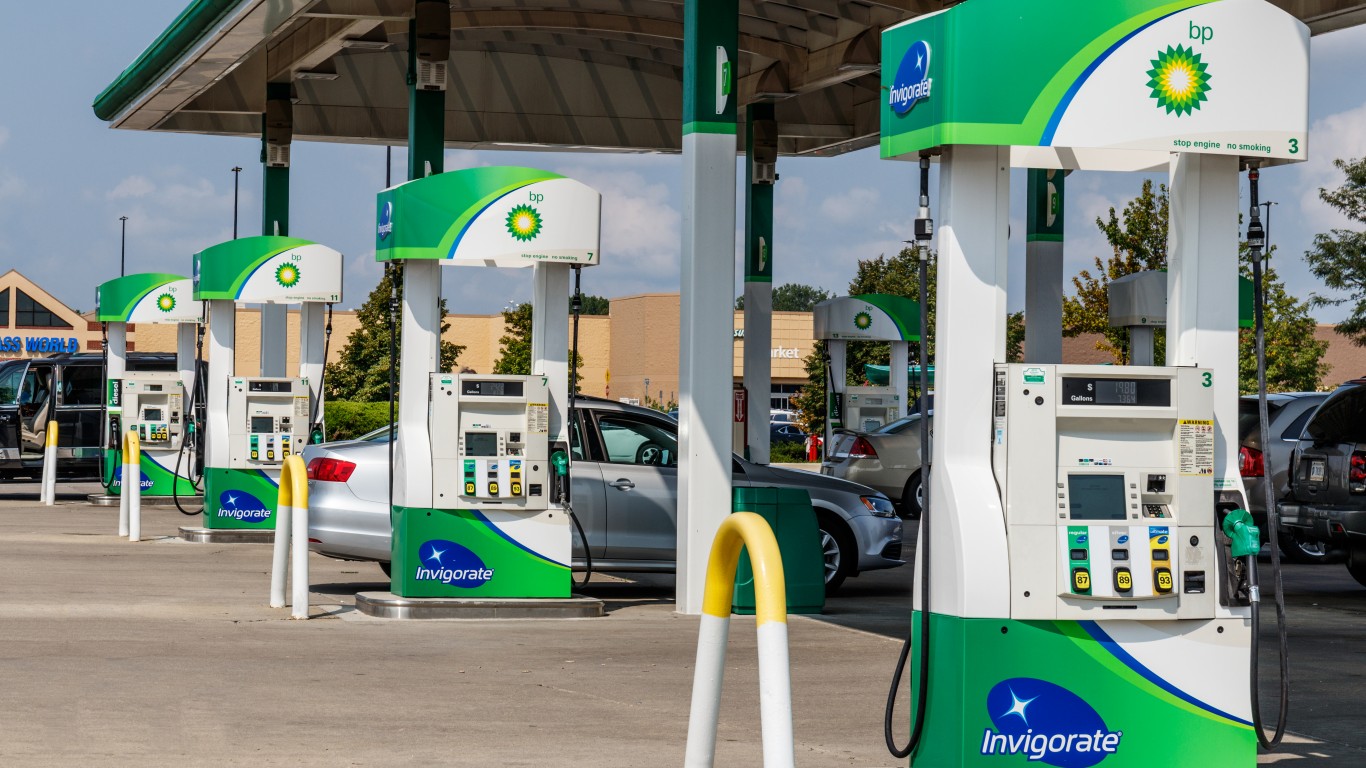
2010
> Highly confident in big business: 19% of Americans
> Somewhat confident in big business: 42% of Americans
> Little to no confidence in big business: 38% of Americans
> Dow Jones Industrial Avg. performance: +11.0%
Oil company BP’s Deepwater Horizon oil drilling platform exploded, killing 11 workers and causing one of the worst environmental disasters in U.S. history. A massive 36-minute “flash crash” of U.S. stock markets in May raised public awareness of automated black-box and high-frequency trading. Photo and video sharing site Instagram debuted in October.
[in-text-ad]
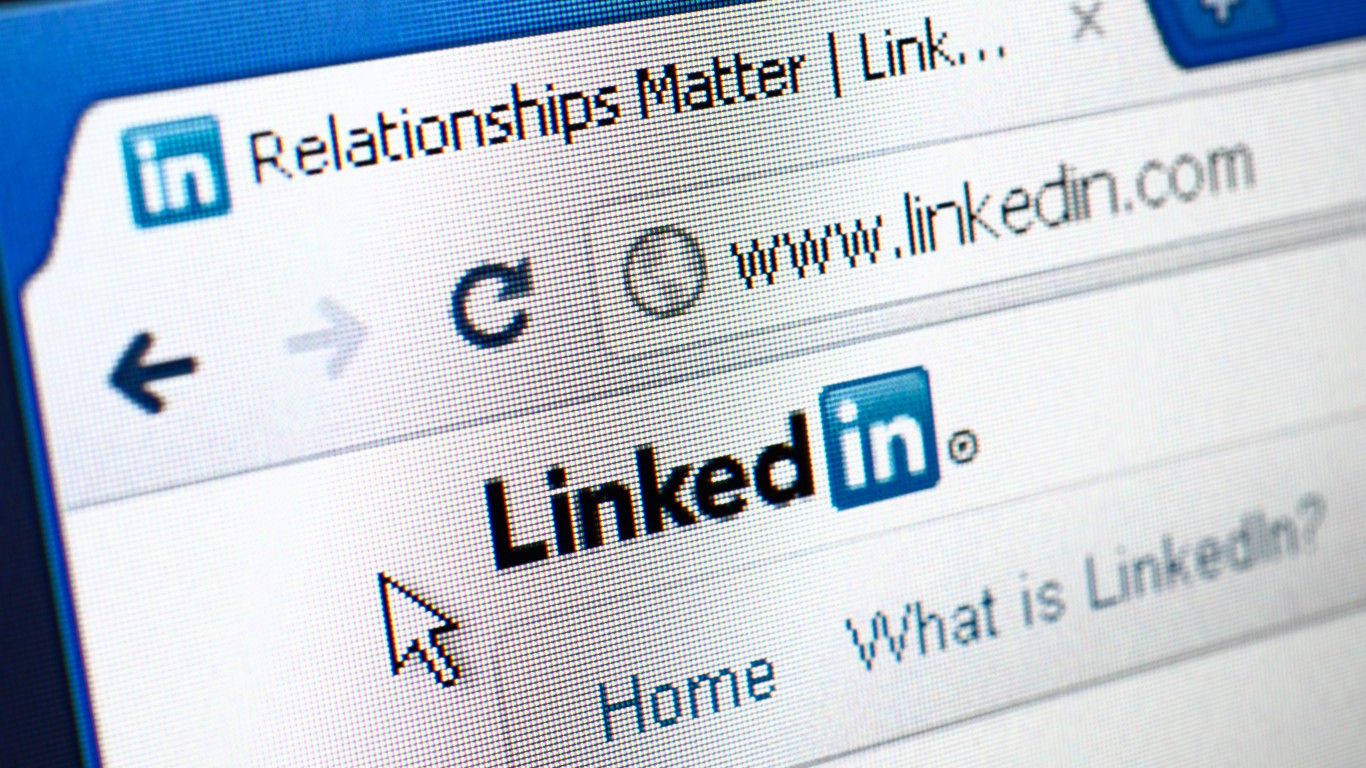
2011
> Highly confident in big business: 19% of Americans
> Somewhat confident in big business: 41% of Americans
> Little to no confidence in big business: 39% of Americans
> Dow Jones Industrial Avg. performance: +5.5%
Professional social media site LinkedIn became a publicly traded company in January. A month later, AOL bought the liberal news and commentary site Huffington Post for $315 million. AT&T announced in March its intention to acquire T-Mobile for $39 billion, but the company gave up months later to avoid a difficult clash with U.S. regulators. California solar panel maker Solyndra filed for bankruptcy in September, two years after receiving more than $500 million in low-cost federal loan guarantees. The bankruptcy gave Republicans an opportunity to rail against public spending to promote green energy.
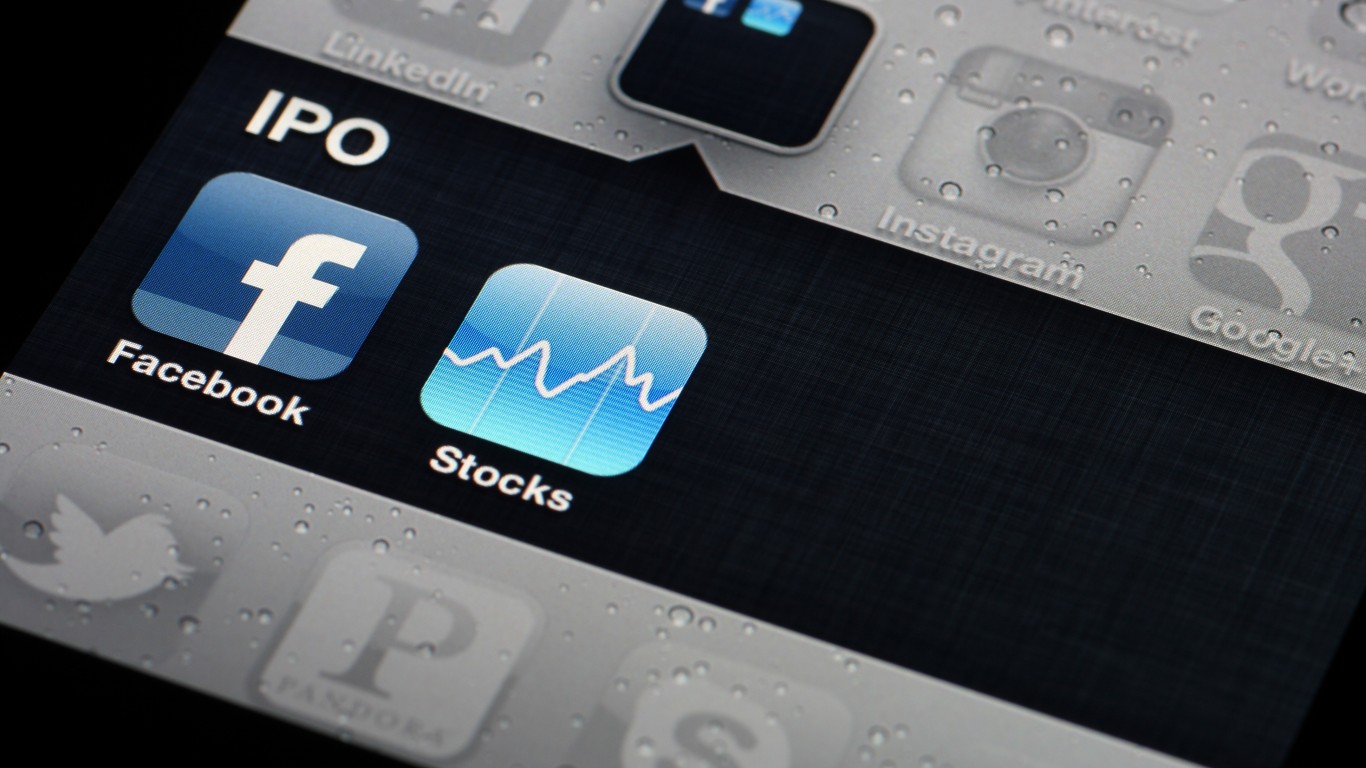
2012
> Highly confident in big business: 21% of Americans
> Somewhat confident in big business: 40% of Americans
> Little to no confidence in big business: 38% of Americans
> Dow Jones Industrial Avg. performance: +7.3%
Kodak, the photographic film manufacturer founded in 1892, filed for bankruptcy protection in January and emerged the following year as a tech company focused on enterprise digital imaging. In May, Facebook became a publicly traded company, and days later SpaceX became the first private company to deliver cargo to the International Space Station. GlaxoSmithKline agreed in July to pay $3 billion in the largest healthcare fraud case in U.S. history. In October, The Walt Disney Company announced it was buying Lucasfilm for $4 billion.
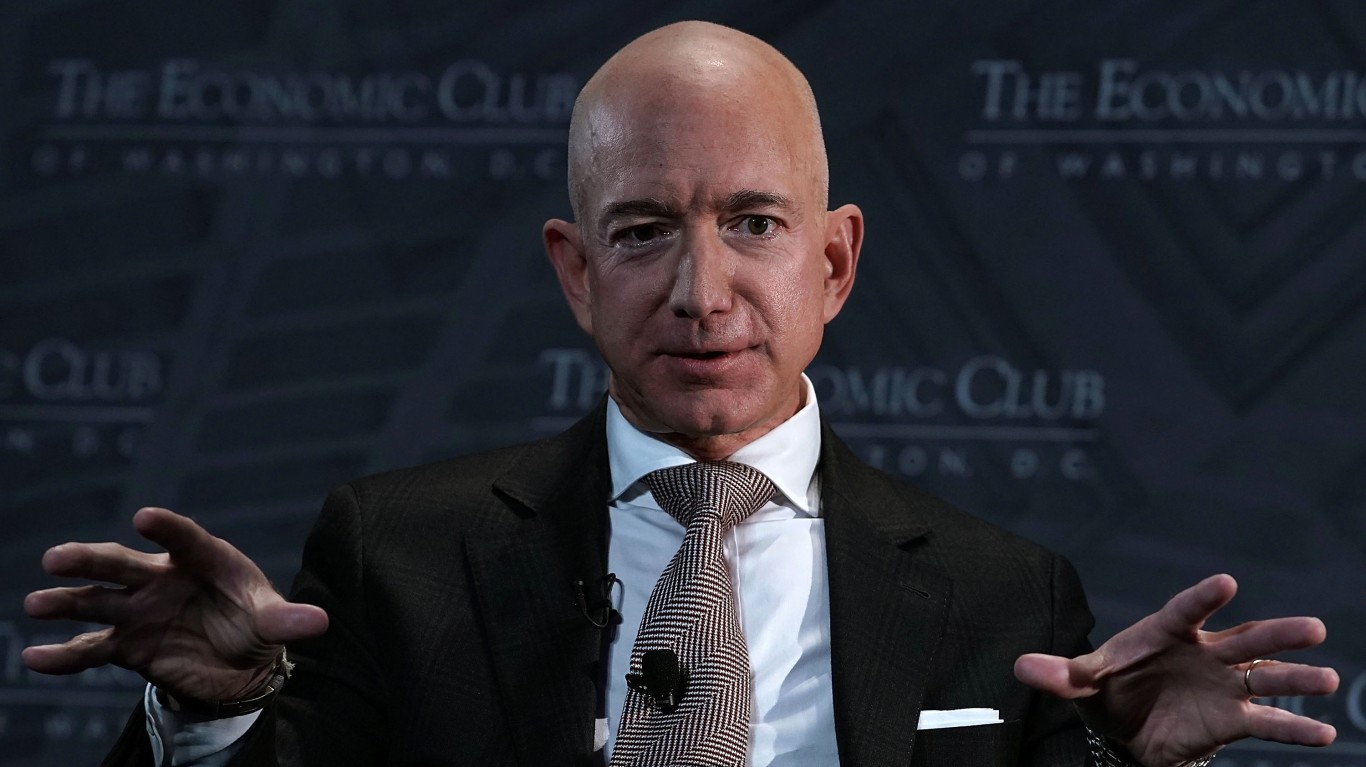
2013
> Highly confident in big business: 22% of Americans
> Somewhat confident in big business: 43% of Americans
> Little to no confidence in big business: 33% of Americans
> Dow Jones Industrial Avg. performance: +26.5%
The year began with a multi-billion-dollar settlement by several major U.S. banks to end foreclosure process audits by the federal government stemming from the subprime mortgage crisis. Boeing 787 aircraft were grounded worldwide for months starting in January over the safety of their lithium-ion batteries. Carriers US Airways and bankrupt American Airlines announced in January they would merge. In August, The Washington Post announced its new owner would be Amazon founder Jeff Bezos.
[in-text-ad-2]
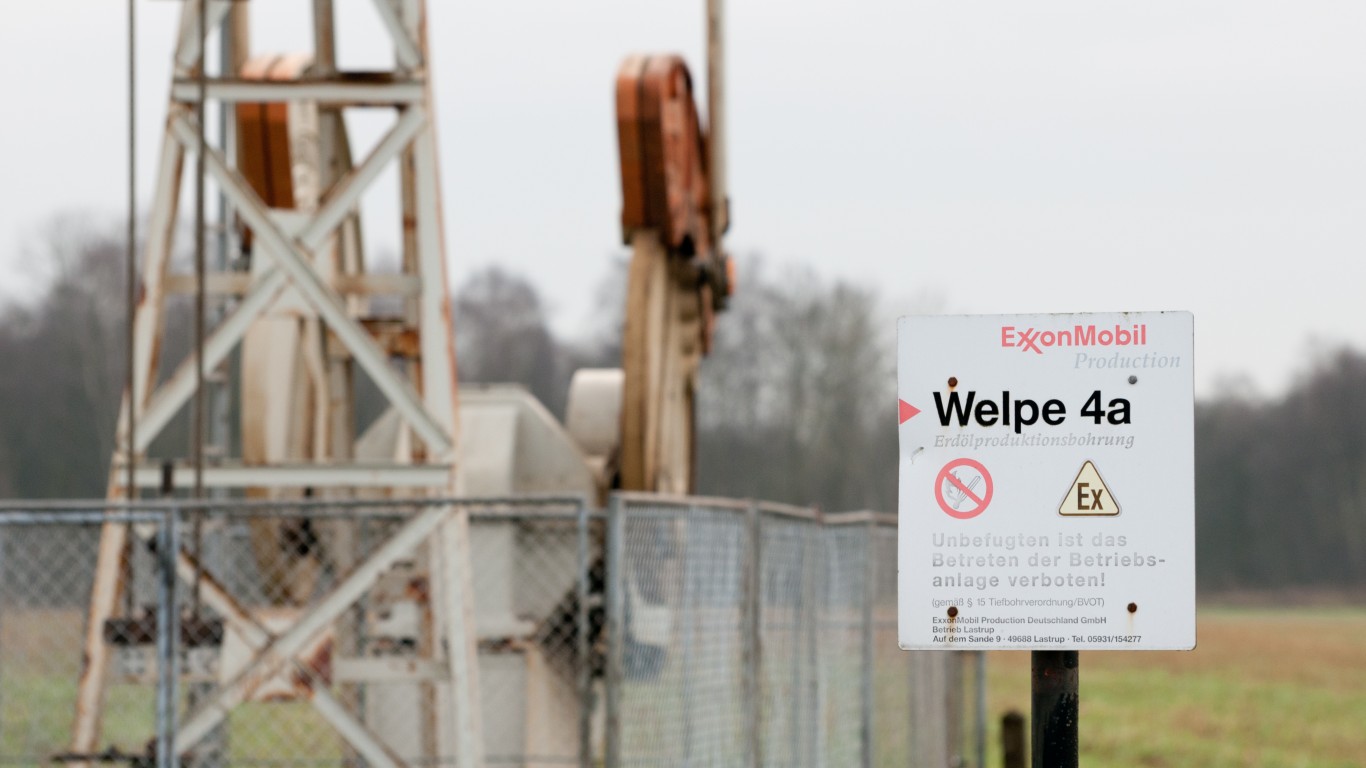
2014
> Highly confident in big business: 21% of Americans
> Somewhat confident in big business: 38% of Americans
> Little to no confidence in big business: 40% of Americans
> Dow Jones Industrial Avg. performance: +7.5%
In May, the United States economy finally recovered the 8.6 million jobs it lost during the subprime mortgage crisis and Great Recession in 2008 and 2009. The jobless rate fell below 6% later in the year. In September, ExxonMobil announced it was pulling out of its $700 million exploration project in Russia over Western sanctions stemming from Russia’s meddling in Ukraine. In early 2014, General Motors initiated its first recall in what would become a fatal safety defect involving millions of ignition switches in several GM car brands worldwide.
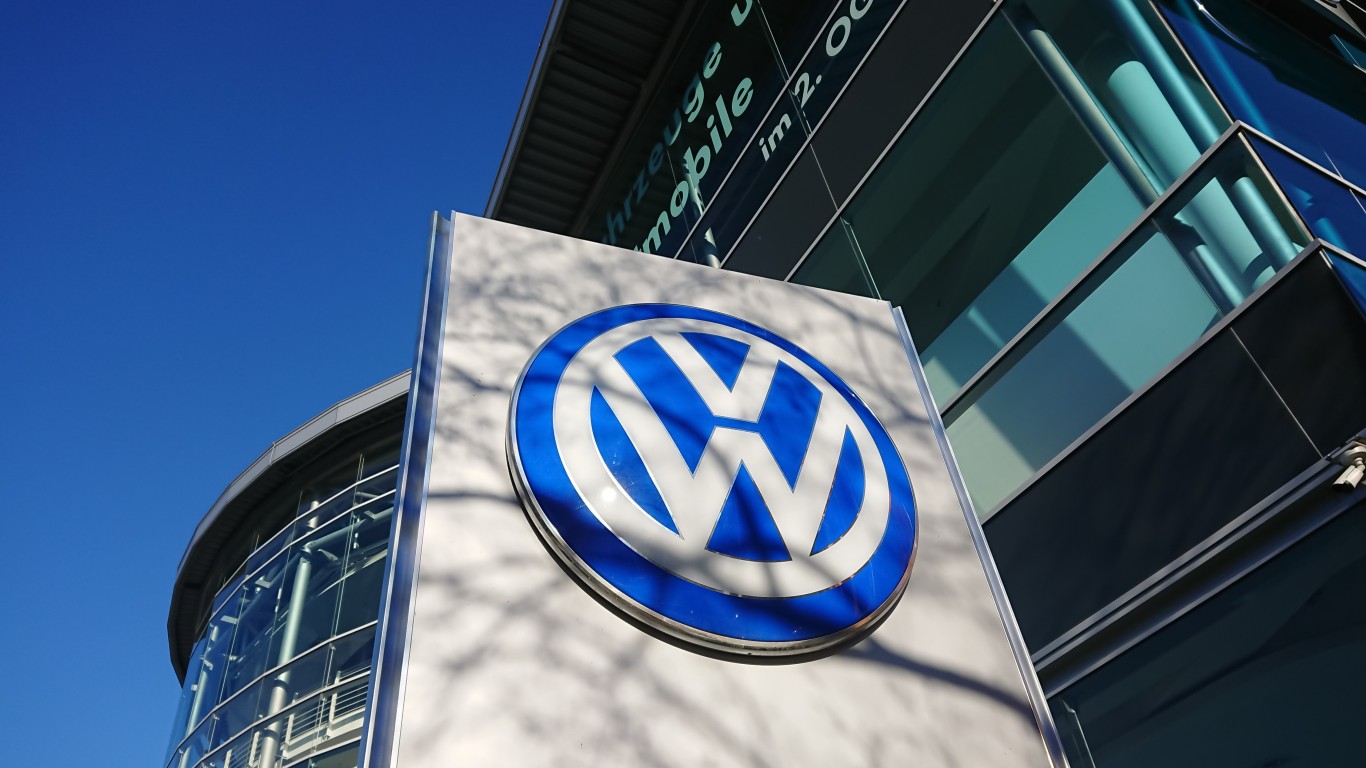
2015
> Highly confident in big business: 21% of Americans
> Somewhat confident in big business: 41% of Americans
> Little to no confidence in big business: 37% of Americans
> Dow Jones Industrial Avg. performance: -2.2%
German auto behemoth Volkswagen Group admitted publicly in September that it used devices in its “clean diesel” cars to cheat emissions tests when in fact the vehicles were emitting up to 40 times the legal limit for toxic nitrogen oxide pollutants. Electronics retailer RadioShack, founded in 1921, filed for bankruptcy protection in February. BP agreed to pay nearly $19 billion in reparations for the 2010 Deepwater Horizon oil spill.
[in-text-ad]
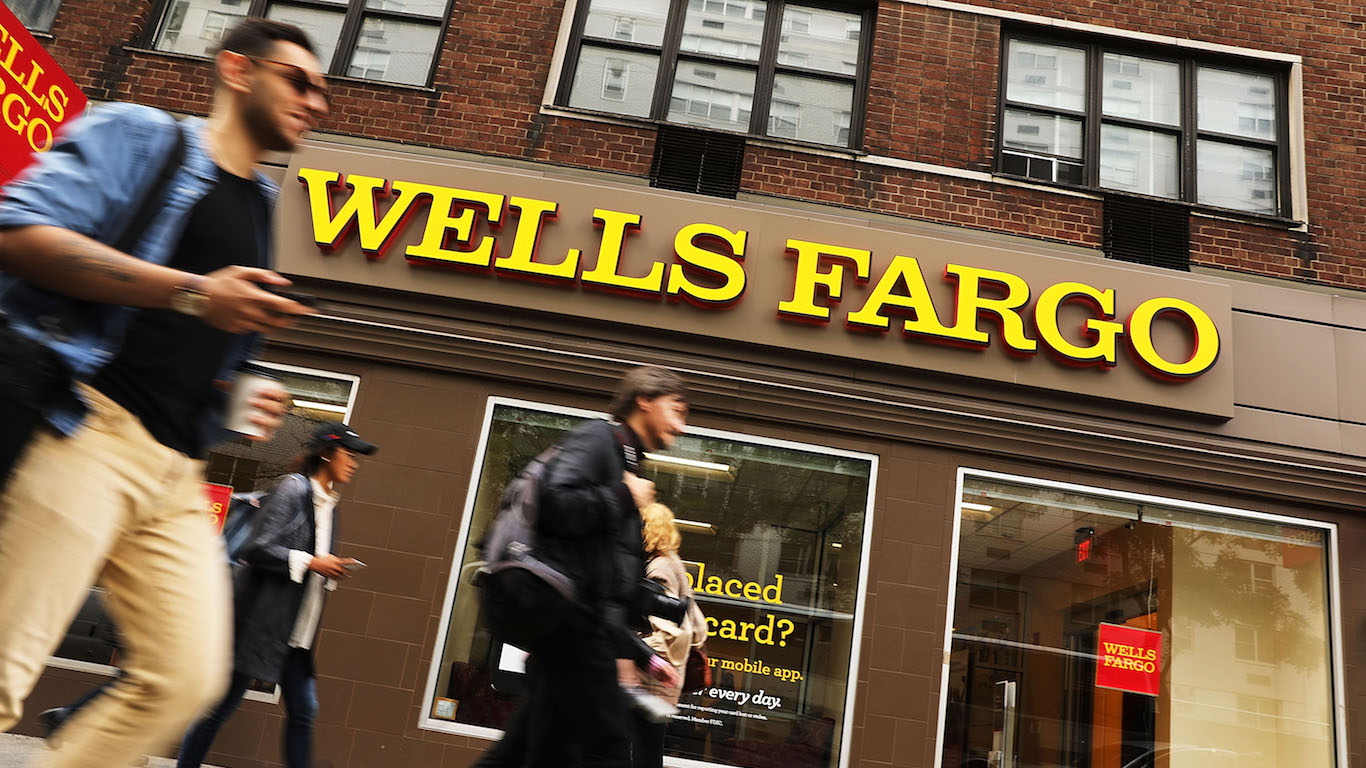
2016
> Highly confident in big business: 18% of Americans
> Somewhat confident in big business: 43% of Americans
> Little to no confidence in big business: 38% of Americans
> Dow Jones Industrial Avg. performance: +13.4%
Drugmakers Pfizer and Allergan cancelled a $160 billion merger over the Obama administration’s new rules regarding tax inversions, a legal but controversial method of corporate tax avoidance. That spring, SpaceX successfully landed a reusable first-stage rocket, marking a first for a new cost-savings method of launching space vehicles. In late 2016, Wells Fargo bank admitted that its employees were boosting their sales numbers by creating millions of fraudulent savings and checking accounts.
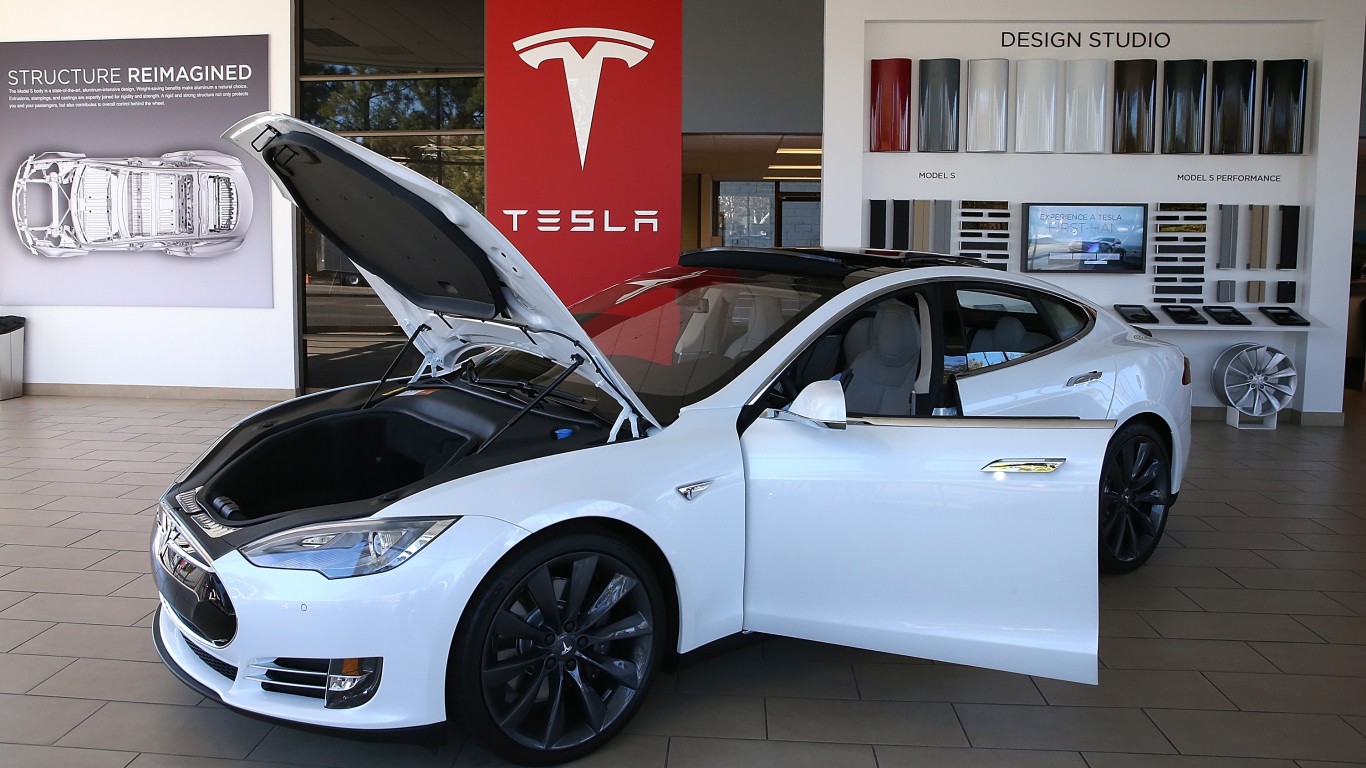
2017
> Highly confident in big business: 21% of Americans
> Somewhat confident in big business: 38% of Americans
> Little to no confidence in big business: 39% of Americans
> Dow Jones Industrial Avg. performance: +25.1%
In January, the Massachusetts attorney general’s office ordered ExxonMobil to provide documents related to an investigation into whether the oil company misled the public on what it knew about the link between fossil fuels and global warming. The federal funds rate that underpins the cost of borrowing topped 1% in 2017 for the first time since the Great Recession, a signal that the U.S. economy was beginning to recover from the subprime mortgage fiasco.
2018
> Highly confident in big business: 25% of Americans
> Somewhat confident in big business: 43% of Americans
> Little to no confidence in big business: 30% of Americans
> Dow Jones Industrial Avg. performance: -5.6%
Facebook announced in March it was barring Cambridge Analytica — a data firm owned by right-wing billionaire Trump supporter Robert Mercer — from its platform, only after a whistleblower went public showing the firm used shady tactics to farm data from millions of Facebook users to influence elections. In August, Apple became the first publicly traded company to reach a market capitalization of $1 trillion.
[in-text-ad-2]
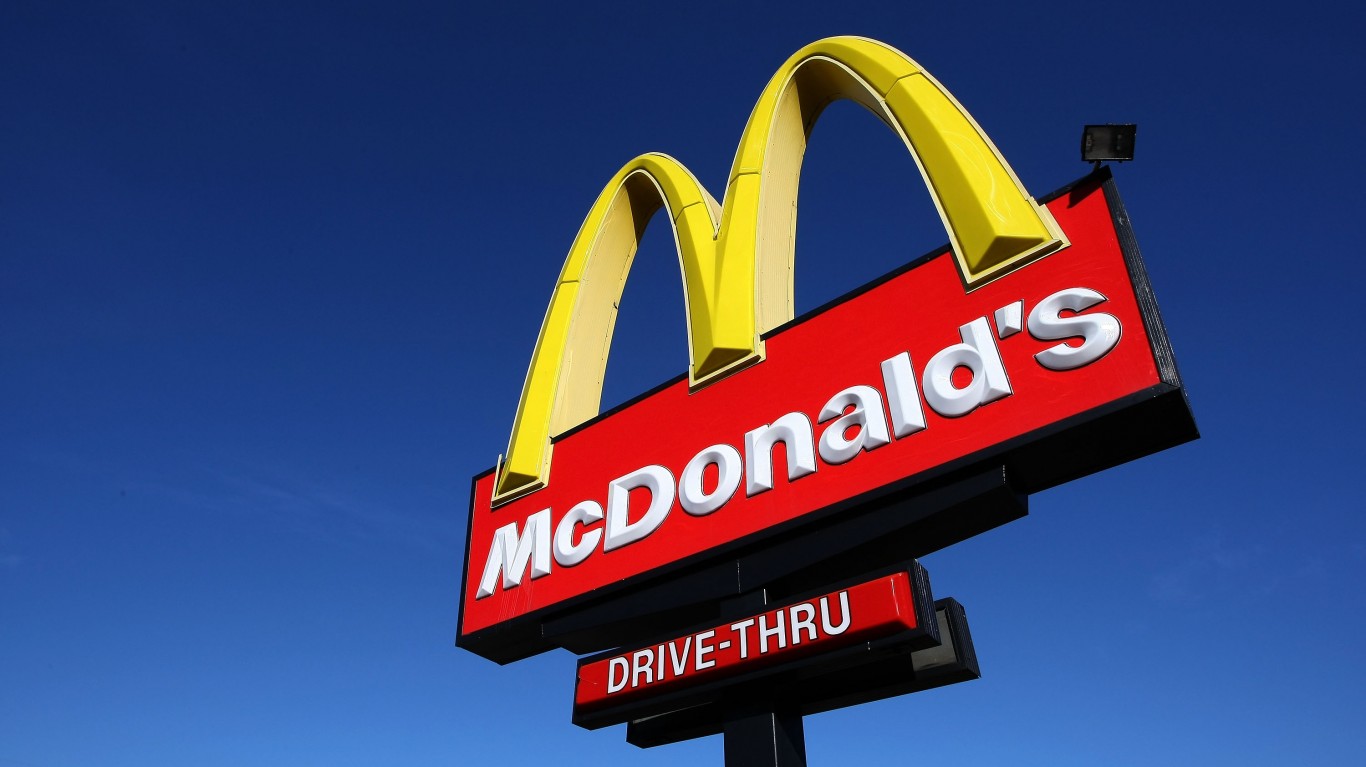
2019
> Highly confident in big business: 23% of Americans
> Somewhat confident in big business: 41% of Americans
> Little to no confidence in big business: 34% of Americans
> Dow Jones Industrial Avg. performance: +22.3%
In March, Boeing grounded its global fleet of 737 Max jets after crashes in Indonesia and Ethiopia. The U.S. Federal Aviation Administration rescinded its order to halt commercial operations of the jet in late 2020 after a flaw in an automated feature of the aircraft was fixed. In late 2019, McDonald’s CEO Steve Easterbrook was fired for having a consensual relationship with an employee.

2020
> Highly confident in big business: 19% of Americans
> Somewhat confident in big business: 45% of Americans
> Little to no confidence in big business: 36% of Americans
> Dow Jones Industrial Avg. performance: +7.3%
Amazon.com CEO Jeff Bezos became the first person in history with a net worth topping $200 billion. In 2021, tax documents leaked to ProPublica showed that, in 2011, Bezos (filing jointly with his then-wife Mackenzie Scott) claimed and received a $4,000 child tax credit despite a net worth at the time of $18 billion, and that the couple paid less than 1% in federal income taxes from 2014 to 2018. Some publicly traded companies prospered during the pandemic, including drug makers, tech companies, and online retailers.
[in-text-ad]
2021
> Highly confident in big business: 18% of Americans
> Somewhat confident in big business: 41% of Americans
> Little to no confidence in big business: 41% of Americans
> Dow Jones Industrial Avg. performance: +13.8%
Tesla and SpaceX CEO Elon Musk temporarily became the world’s richest person in January, but Amazon.com founder Jeff Bezos reclaimed the position weeks later. Six months after the Jan. 6 Capitol riot, only a few large corporations made good on their promises to suspend PAC donations to Republican lawmakers who voted to overturn the legitimate 2016 presidential election results. Major publicly traded companies, including AT&T, Home Depot, Pfizer, and Walmart, gave money in 2021 to party committees and leadership PACs that could easily channel campaign money to the GOP objectors.
The Average American Is Losing Momentum On Their Savings Every Day (Sponsor)
If you’re like many Americans and keep your money ‘safe’ in a checking or savings account, think again. The average yield on a savings account is a paltry .4%1 today. Checking accounts are even worse.
But there is good news. To win qualified customers, some accounts are paying more than 7x the national average. That’s an incredible way to keep your money safe and earn more at the same time. Our top pick for high yield savings accounts includes other benefits as well. You can earn a $200 bonus and up to 7X the national average with qualifying deposits. Terms apply. Member, FDIC.
Click here to see how much more you could be earning on your savings today. It takes just a few minutes to open an account to make your money work for you.
Thank you for reading! Have some feedback for us?
Contact the 24/7 Wall St. editorial team.
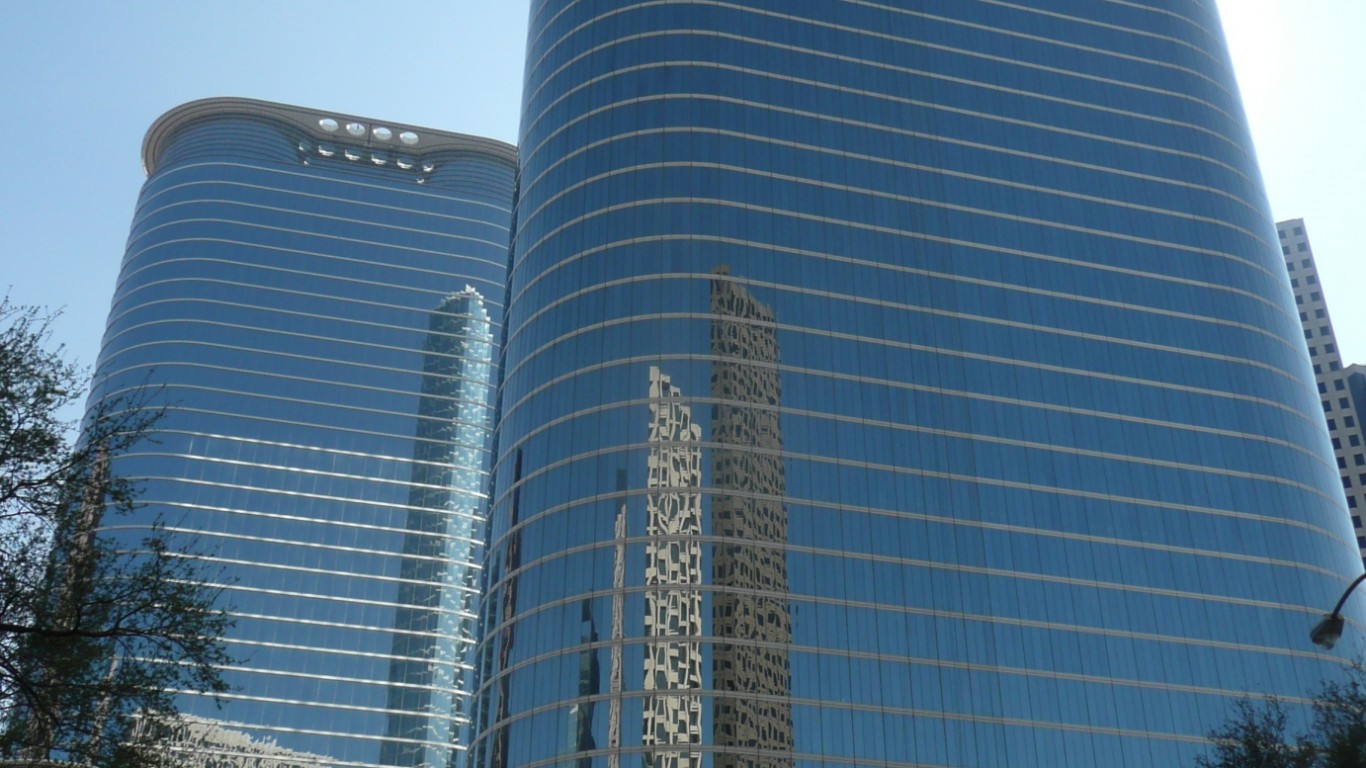
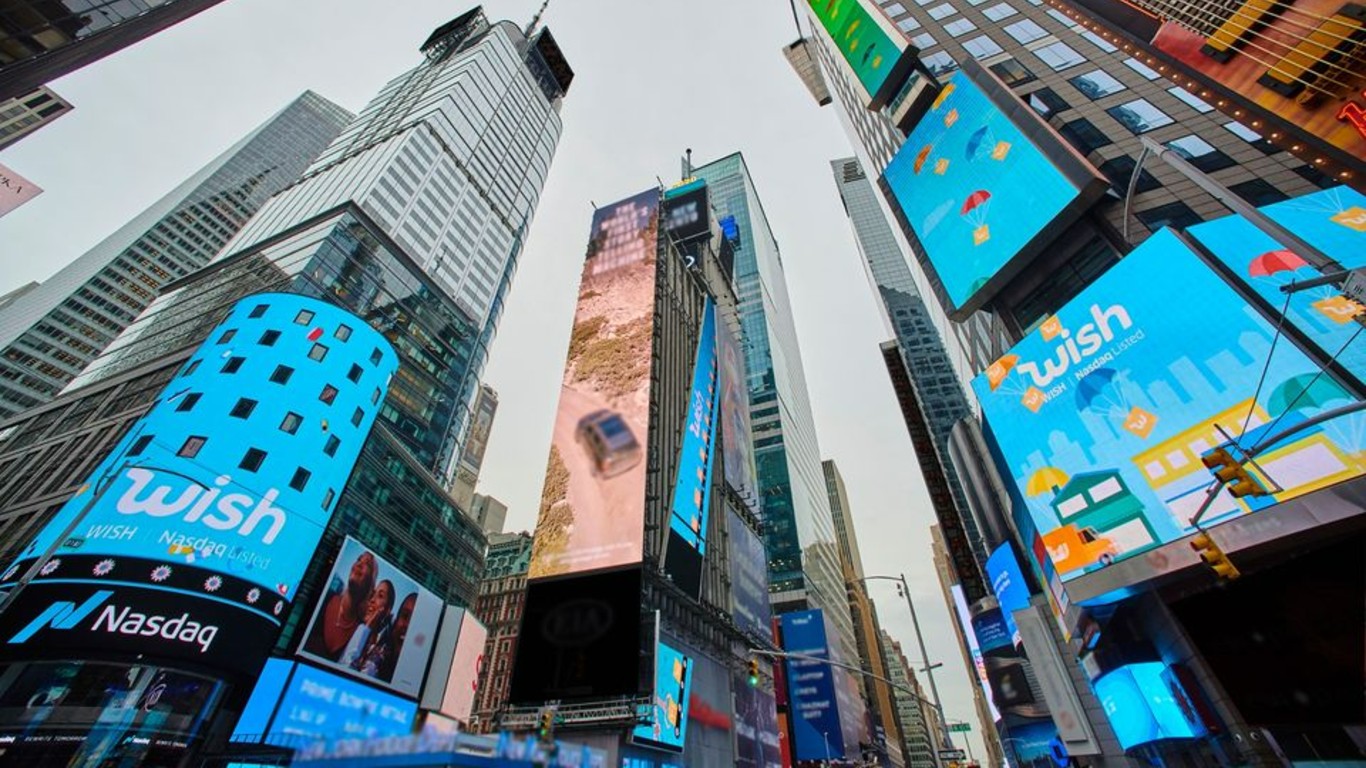 24/7 Wall St.
24/7 Wall St.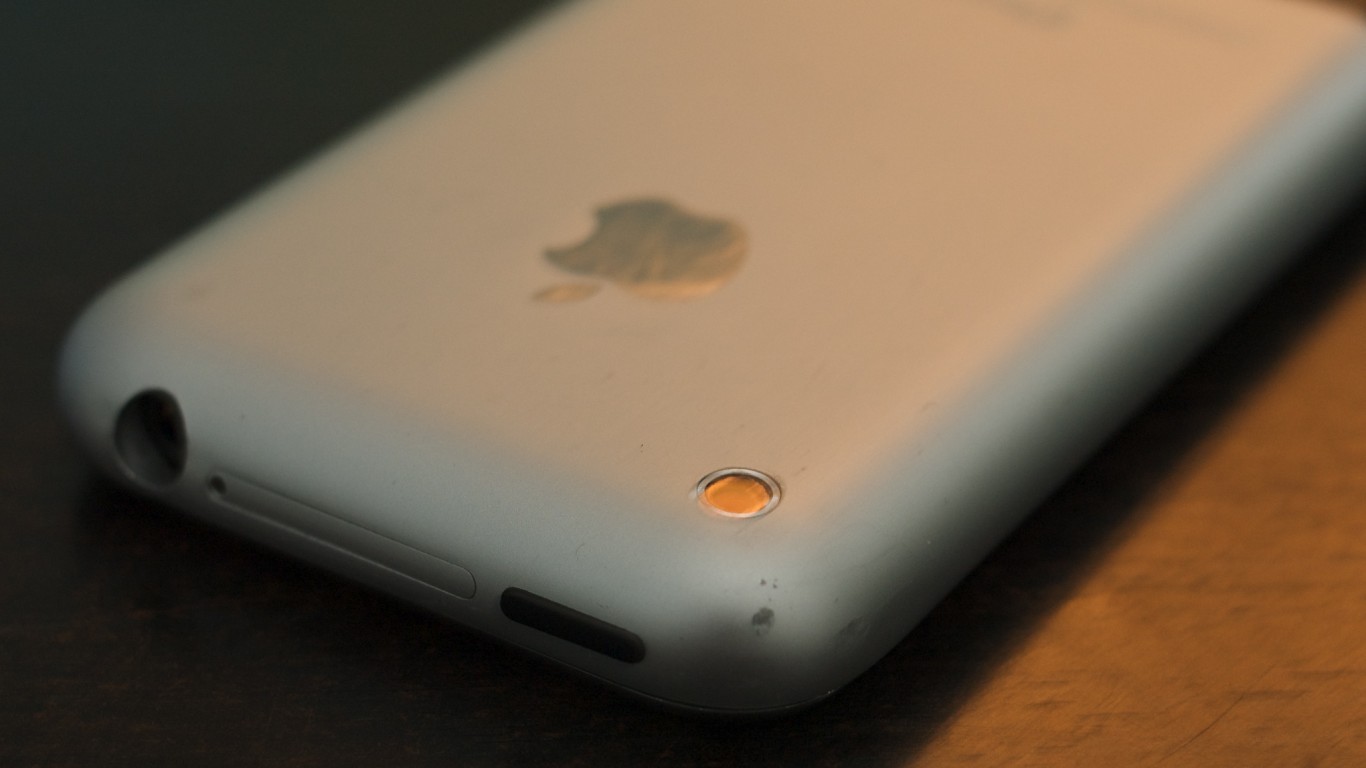
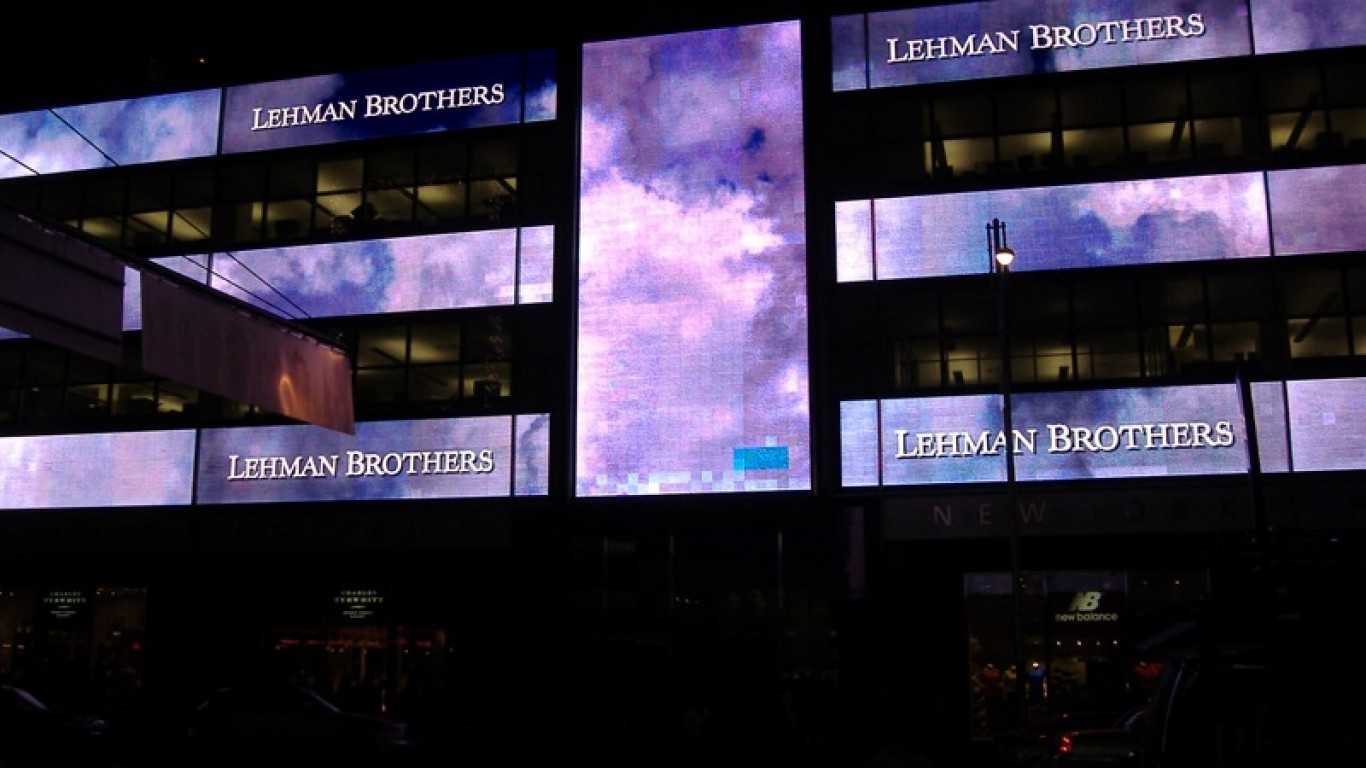
 24/7 Wall St.
24/7 Wall St.